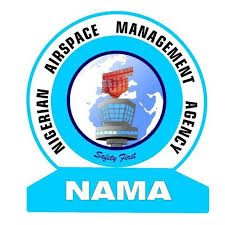The Nigerian Airspace Management Agency has embarked on a groundbreaking, comprehensive audit of the nation’s airspace, marking a significant milestone in its 25-year history. The exercise, which commenced on Tuesday, aims to conduct a thorough self-assessment of the Kano Flight Information Region, effectively covering the entirety of Nigerian airspace.
According to a statement issued and signed by NAMA spokesperson Abdullahi Musa, the audit seeks to evaluate the safety, operational efficiency, and regulatory compliance of the country’s air navigation systems in line with global standards.
“The audit is designed to strengthen the agency’s readiness for the Nigerian Civil Aviation Authority’s upcoming Air Navigation Service Provider certification and to ensure Nigeria is fully prepared for the International Civil Aviation Organisation’s forthcoming Universal Safety Oversight Audit Programme, Coordinated Validation Mission and Regional Office Safety Team Mission,” the statement read.
NAMA’s Managing Director, Farouk Umar, described the audit as a transformative step in positioning Nigeria’s airspace for future growth and international recognition. “This audit is a landmark initiative, the first of its kind in NAMA’s 25-year history. It represents a bold and proactive step toward reinforcing our mandate of delivering safe, efficient, and seamless air navigation services in line with international best practices,” he emphasised.
The audit will involve in-depth inspections of key components of airspace management, including Air Traffic Services, Communication, Navigation and Surveillance infrastructure, Aeronautical Information Management, Planning, Research and Statistics, and Search and Rescue operations. The scope extends to Nigeria’s four major international airports – Lagos, Abuja, Kano, and Port Harcourt – as well as regional hubs like Enugu and Maiduguri, and several state-owned and private aerodromes.
Umar noted that the audit is not merely a compliance exercise but a strategic move to benchmark Nigeria’s aviation system against the highest global standards. “It’s about building systems that are robust, resilient, and respected globally. The audit reflects our determination to foster accountability, transparency, and continuous improvement and to showcase Nigeria’s airspace as a model of operational excellence across Africa,” he added.
To spearhead the initiative, the Managing Director has inaugurated the FIR Audit Committee, chaired by the Director of Special Duties, Ahmad Abba. The committee comprises experts from critical departments, including air traffic services, CNS/ATM systems, AIM, safety management, and search and rescue.
“The safety and efficiency of our airspace is non-negotiable. This exercise is key to strengthening our operational systems and solidifying Nigeria’s credibility and leadership within the global aviation community,” Umar stressed.















